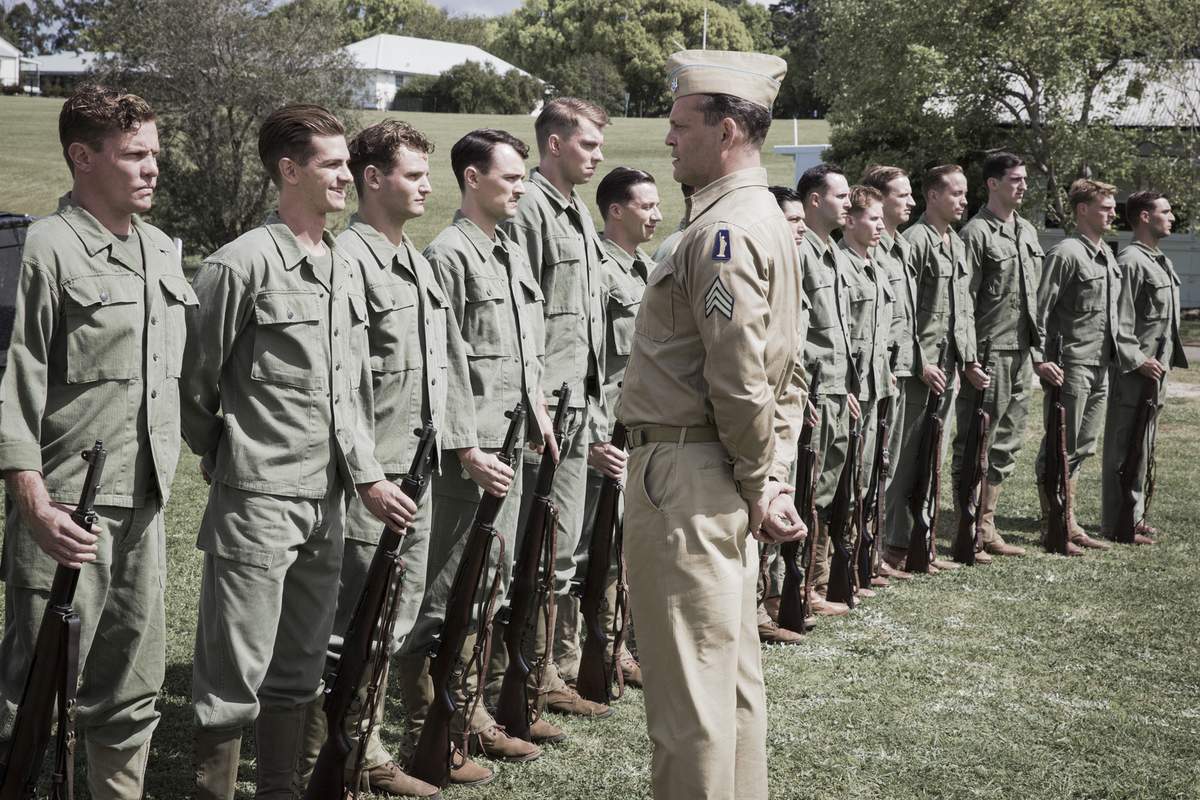If it does not upset the codes of the war film, Thou shalt not kill retraces a fascinating story. That of a man of infallible courage and determination, who went to the front without any weapons for the sole purpose of helping his companions. Mel Gibson signs here a powerful film and allows the public to meet an extraordinary character.
The story of an unarmed soldier

Desmond Doss really existed, but it was only at the end of his life that he agreed to tell his story for a big screen adaptation, not wanting to be exposed to the media. He joined the infantry as a medic during World War II and always refused to hold a gun because of his religion. The film, written from his interviews, is faithful to reality, despite some scripted freedoms.
From the opening scene, Mel Gibson gives us a glimpse of what will constitute the second part of the film: the battlefield. But before that, we follow Desmond's evolution within his family and then training camp, this last period being treated with welcome humor.
The young man must face the violence of his father, a veteran turned alcoholic (Hugo Weaving, of impressive credibility), then the mockery, humiliation and beatings of his comrades. Unable to gain any support from his superiors, Desmond must fight to impose his principles. Courageously, without ever dismantling himself, he will obtain permission to go on the ground.
An uncompromising representation of war

We then leave at the same time as these soldiers who do not yet measure what awaits them. Each of them had a more or less precise idea, but none was really prepared for it. No one could have prepared for it. On the way to Hacksaw Ridge, where the battle takes place, they meet the soldiers returning from the front, or rather what remains of them. The contrast is striking. Once at base camp, the clean and vigorous bodies of the new arrivals joined the tired and mud-covered bodies of the soldiers of the previous division. The willful and determined gaze is opposed by the haggard and empty eyes of those whom the war has already marked forever.
Then the spectator is immersed in the heart of the battlefield. Nothing is spared him. The forehead is depicted in a raw, brutal way. The fights are remarkably staged. We come out troubled. The words "violence" and "horror", the usual adjectives of war, take on their full meaning here. Desmond, in the midst of this massacre, tries to carry out the mission he has given himself to the end, bringing back one by one the mutilated bodies of his companions to the camp. We must salute the performance of Andrew Garfield, simply overwhelming. Just in his game from beginning to end, he embodies a Desmond Doss brimming with humanity and sensitivity, without ever overdoing it.
There are many war films, but few paint such a realistic and striking portrait of them, without hesitation to the public. We are told that war is absurd, and Mel Gibson's work helps us better understand why. Soldiers train hard for months, they forge a determination of steel, are driven by an unwavering will to serve their country, and all this to … being killed after ten minutes on the battlefield. This is the sad reality that Mel Gibson throws at the viewer.
We are touched, as much by this painting of war as by this history hitherto totally unknown. Impressed too, by the immense courage and humility shown by this hero. A work that abuses us and makes us feel good. To see, if only to know the extraordinary character that was Desmond Doss.






































